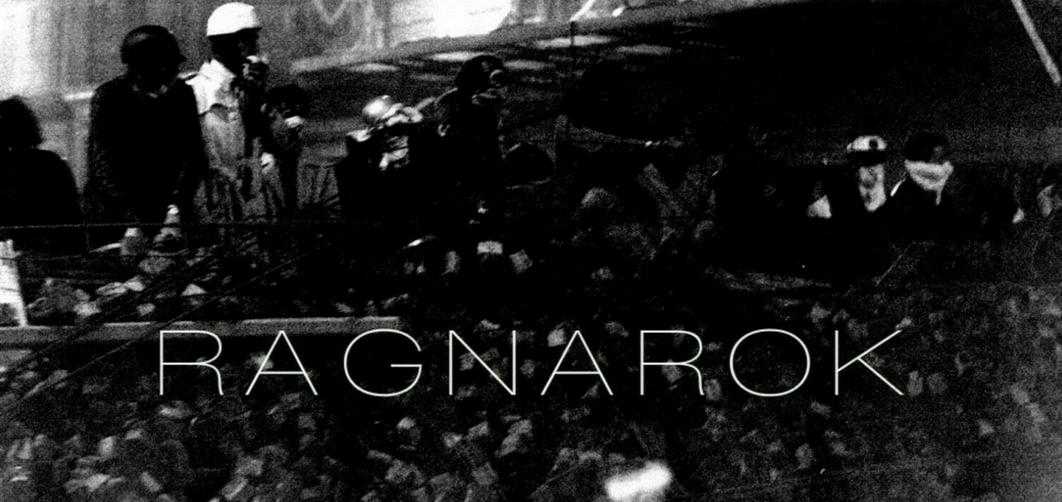The modern world has held us hostage non stop, ever since childhood, venting the merits of security and making us forget the copious dose of servitude we must accept in return for progress through a series of increasingly poorly kept promises.
As the horizons that present themselves at the forefront of civilisation’s advances continue to darken – the ravaging of wilderness, the increasing domestication of the living, the artificialisation of beings – the present world continues its frantic race, making it ever more dependent on energy infrastructures and the products they consume and produce: oil, uranium, electricity.
In the space of less than two centuries, the production of electricity and the increasing electrification of spaces has continued to expand and colonise every part of our lives.
Initially, only a few businesses and industries used electric energy. Then the technique gradually spread to domestic use. Today, we carry and use more and more accessories in our daily lives at every moment, in our pockets or on our wrists, and they give rhythm to the slightest moment of our existence to the point of their use being completely normalized.
What is clear is that a technique that was once marginal and reserved for a few industries has taken on an exponential and diffuse dimension, imposing its reign in the span of a few generations.
If getting out of the digital web seems an increasingly complex challenge to realize, trying to escape from a world in which all relationships are subject to electricity is even more so.
What is now apparent is that as society becomes more dependent on electricity, it is in danger of not being able to sustain its organisational existence without it. It took these same few generations to lose the use and knowledge of a set of acts and practices, once again accelerating the reign of dependency. Beyond comfort, what the electric world builds in us above all is an experience of the dispossession of our choices and autonomy. Most of the life experiences that we can have often take place within an increasingly normalised reality.
Electrical infrastructure is then revealed as the cornerstone of what, under the guise of a world of progress and emancipation, turns out to be a totalitarian and murderous system that often forces us, willingly or not, to move forward in the direction of its development.
If, through our act of sabotage, we attacked an important electrical transformer in the Aubenas basin during the night of 13 July 2021, it is because we wanted to direct our rage against the whole of what the electrical system embodies and represents. At the same time, we wanted to remove ourselves from the ideological blackmail that the march of the techno-industrial world is subjecting us to.
In order to be heard by the greatest number of people, the critique of the current world often refuses to radically upset the conditions of existence.
It is said that, from the confines of your domestic space, it is possible to put a certain use of electricity in question, resort to given processes to gain autonomy and self-sufficiency from a certain point of view.
As it has become so complicated for the majority to imagine a world without electricity, “acts of resistance” are transformed in a technical way, in the image of the world by which they are produced. Rather than question techno-scientific domination as a whole, we will be seduced by the illusory possibility of reappropriating bits and pieces of a world that, for a long time, has no longer been thought of on the scale of our needs but responds above all to the rise of the reign of machines.
The Revolution of small daily gestures will not take place. In any case, from now on it is acclaimed by domination and takes the form of a smokescreen distilling the illusion of action. This so-called Revolution seems to us a fundamental renunciation, the loss of our ability to imagine a radically different world in which norms would no longer be dictated by the scientific and industrial imagination. We wish to continue to desire and envisage a world in which technical progress would no longer be the only positive narrative shaping the future.
If we believe in individual possibilities, we think it is a pity that they have to be pacified by overvaluing small daily gestures, turning the choice of an eco-friendly soap or a timed shower in a modern flat into a subversive practice. The choice of turning on or off the light is increasingly like false electoral possibilities, as if the criticism of the present world could only be made within an imposed framework (electoral system, digital infrastructure…).
Today, whoever knowingly attacks what is connected to the indispensable flows of the contemporary world is systematically considered the hostage-taker of many human lives.
It seems curious that contemporary Western morality, while it has never ceased to build itself on a series of mass murders and individual enslavements (slavery, colonisation), while it has treated entire populations as nuclear guinea pigs (Polynesia, Algeria,… ), while it organises servitude for the majority of people, barely disguised by consumption, while it knows without flinching that its entire standard of living is the fruit of the enslavement of living beings and other out of sight humans, treats as terrorists any individuals who would question the general level of dependency on infrastructures and untouchable flows that are supported by most people.
By attacking the electricity infrastructure directly we want to pierce the abscess of blackmail that this world is forcing upon us. To hear the technocrats: anyone wanting to go against the modern, benevolent world is attacking the weakest and most dependent of the system.
We are tired of delegating our strength, our capabilities and our security to a world that locks us in, maintains our dependence and often organises our weakening.
Contrary to everything they might say, progress is not a philanthropic project.
In the age of capitalism, technical advances are above all commercial projects. The ultimate goal is not and never has been to make some people happy or contribute to the comfort of others. In this mirage in which we live, everything is maintained to make the rules of the economy and the State invisible. It is easier to accept hell when it is paved with good intentions.
We are currently deprived of exploring other possibilities of existence by the construction of infrastructures that are increasingly chaining us to a murderous societal project. When everything and everyone is caught and held by the same dominant reality, it is no longer possible to oppose it without directly opposing the whole system and its infrastructures.
While it seems important to disconnect individually, the very nature of the interconnected grid makes individual disconnection an incomplete and insufficient act.
Attacking the infrastructure is a much greater guarantee that the electric world will stop capturing us and imposing its reign of speed.
To unplug this electric world is to reveal the extent of what it affects and governs.
To unplug this electric world is to acknowledge that it is increasingly difficult to act and think for ourselves beyond its grip and that it is becoming increasingly important to do so.
Unplugging this electrical world is an attempt to create a chain reaction, affecting all the infrastructures and things that function thanks to electricity (digital, communication, banking, state, industry and business networks, military and police infrastructures, etc.).
Disconnecting this electrical world means attacking the myth of clean energy that lies behind nuclear power.
To unplug this electric world is to take a step into the unknown.
During the night, at a very late hour, we entered an electric depot on the outskirts of the town of La Chappelle Sous Aubenas in Ardèche. After cutting a large hole in the fence, we sneaked into the infrastructure to attack it at various points.
Several fires were started inside buildings that we had opened previously. These buildings contained generators and backup batteries that we suspect would take over if the rest of the infrastructure were damaged.
We also set fire to several electrical meters around and in the central building, which we believed housed a gigantic converter.
Finally, after lifting two separate metal plates, we set fire to some electric cables snaking between the various installations on the site.
In all, 9 fires were illuminating the night when we escaped.
As far as we could see, the towns and villages around the act were not plunged into darkness. Despite what we imagine to have been significant damage, with several well established fires at the site, the rest of the power grid did not appear to have been touched by the damage we caused.
This has not discouraged us from wanting to keep on attacking the electrical society.
We greet the authors of the Toulouse communique for the attack on an electric transformer. The words of the text touched our hearts and our minds.
Courage to those who resist in the present against the destruction of life and freedom.
A special thought for the comrade Boris, still in coma.
More than ever, in these nauseating times, we prefer the risk of the situation going off the rails to the false peace of deadly comfort.
Better the darkness of a night without neon lights than the brightness of a path into the abyss.
For magic to return to our lives. Because the fairies will never be electric.
PS: Don’t forget to turn off the light on your way out!
[Translated by Act for freedom now! (title was edited to match with the original French one)]






















































